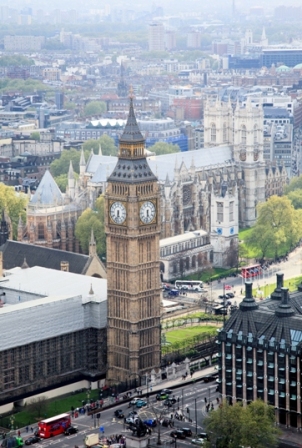Budget needs to set out urgent plan to reduce deficit by £100bn
SUGGESTED



“Politicians are not talking seriously about the need for dramatic and speedy cuts in public expenditure. A few billion here and a few billion there are nowhere near enough to restore market confidence. We can’t be expected to make sufficient savings from so-called efficiency gains; there will need to be major cuts to a whole raft of public services. We also need a radical overhaul of our welfare, education and health systems, to ensure that we don’t suffer as easily in future from the sort of reckless and out-of-control spending that has characterised the last few years.” – Mark Littlewood
Ahead of today’s Budget, we summarise below a series of measures to set the British economy on the course to recovery:
– An urgent plan to cut the deficit
Britain needs an urgent plan to reduce the deficit. Cutting around £100 billion within the next few years must be achievable, especially given that public spending has approximately doubled since 1997.
– A radical overhaul of the welfare system and other public services
To increase savings in the medium term, a radical rethink of the structures of public service finance across areas including health, education and welfare is needed.
– A reversal of previously announced tax rises
The planned increases to National Insurance and income tax should be reversed, along with the reduction in pensions’ tax relief. Zero-rate VAT should be abolished and the money used exclusively to raise personal income tax allowances.
3 thoughts on “Budget needs to set out urgent plan to reduce deficit by £100bn”
Comments are closed.




Surely, we need an urgent plan to cut the deficit by £170 billion?
And I don’t get your emphasis on not reducing “pensions’ tax relief” (I assume you mean for pensions contributions?). It must be clear that the tax breaks for pensions are a complete waste – nearly all the tax breaks get soaked up by the pensions industry.
Do you really imagine that if all the tax breaks were scrapped and tax rates reduced accordingly (the tax breaks equate to about 8% on the basic rate of income tax) that nobody would save up for their old age any more? What if we didn’t have income tax at all? What sort of tax break would you invent then?
I do think there is a case for limited pensions tax relief (but not for the tax-free lump sum) but the way in which this has been approached is horrendously complicated. I don’t see how “nearly all the tax breaks get soaked up by the pensions industry”.
[…] the sort of reckless and out-of-control spending that has characterised the last few years. …This Post Cancel […]